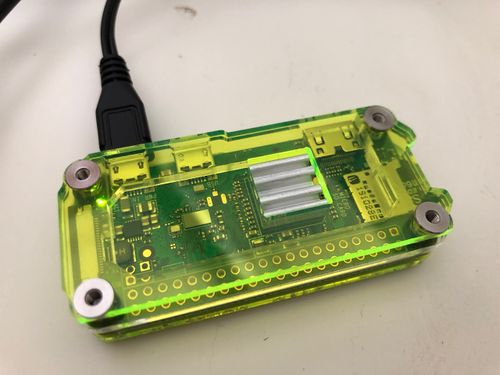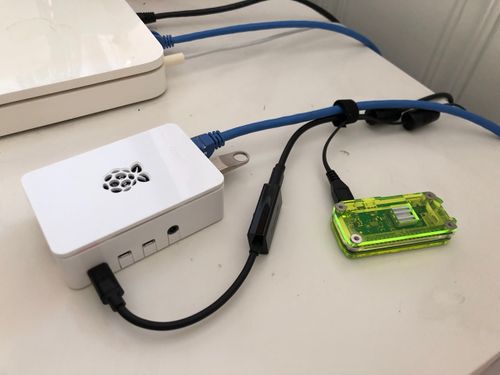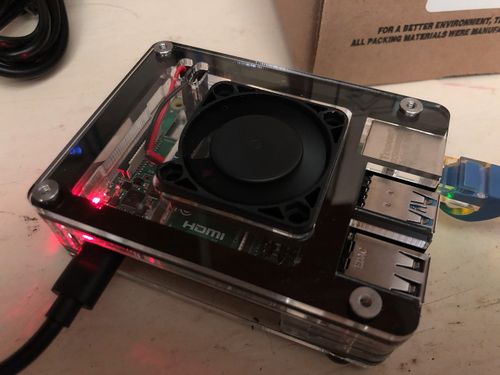April 22, 2020: Difference between revisions
(Created page with "{{Large|Cox-blocked}} {{C19|40}} For the life of me, I could not figure out why my server could not successfully retrieve an SSL certificate from Let’s Encrypt. I had done...") |
(Fixed typo.) |
||
| (3 intermediate revisions by the same user not shown) | |||
| Line 1: | Line 1: | ||
{{Large|Cox-blocked}} {{C19| | {{Large|Cox-blocked}} {{C19|41}} | ||
For the life of me, I could not figure out why my server could not successfully retrieve an SSL certificate from Let’s Encrypt. I had done it before. My proxy server seemed to be working. I even posted to the LE help forum, and some dude told me that my port 80 was down. What? It had been working fine...then I remembered something... | For the life of me, I could not figure out why my server could not successfully retrieve an SSL certificate from Let’s Encrypt. I had done it before. My proxy server seemed to be working. I even posted to the LE help forum, and some dude told me that my port 80 was down. What? It had been working fine...then I remembered something... | ||
| Line 5: | Line 5: | ||
A quick search, and I confirmed it: [https://www.cox.com/residential/support/internet-ports-blocked-or-restricted-by-cox.html Cox blocks port 80 on residential service]. Of ''course'' they do. Of ''course'' their reasons are bull💩; they just want to charge you more for a “business” account when it would take some sysadmin three seconds at a terminal to open the firewall. I know: I should call them before I complain too much, but I can already predict that call would not go well. This is so frustrating and negates the ''only'' reason I bought my third Raspberry Pi for a proxy server. | A quick search, and I confirmed it: [https://www.cox.com/residential/support/internet-ports-blocked-or-restricted-by-cox.html Cox blocks port 80 on residential service]. Of ''course'' they do. Of ''course'' their reasons are bull💩; they just want to charge you more for a “business” account when it would take some sysadmin three seconds at a terminal to open the firewall. I know: I should call them before I complain too much, but I can already predict that call would not go well. This is so frustrating and negates the ''only'' reason I bought my third Raspberry Pi for a proxy server. | ||
. . . | Speaking of servers I don’t need anymore, I finally got my cases for my RP4 and RPZ. I think they looks bad-ass. | ||
<gallery mode=packed-hover heights=250px> | |||
File:20200422-rp-01.jpg|Looking good in Laser LIme. | |||
File:20200422-rp-02.jpg|My Pihole RP4 and its new Zero W companion. | |||
File:20200422-rp-03.jpg|RP4 and its slick new black Zebra case. | |||
</gallery> | |||
{{* * *}} | |||
I’m kind of at a loss as what I can do to still run a web server. I joined Cloudflare and got <code>grlucas.com</code> resolving again using port 443. This is only a temporary fix, as my certificate from Let’s Encrypt will run out in a couple of months and I will not be able to renew it. That said, Cloudflare is a very nice service, and I’m looking forward to learning more about its capabilities. | |||
In looking around, I came across [https://www.reddit.com/r/homelab/comments/5swu2a/how_to_get_around_isps_blocking_port_80/ this thread on r/homelab] which gave me some hope. I contacted the OP, but he was not much help, so I’ll have to figure it out myself. He did mention getting a VPS and setting up a reverse proxy on that. I might be able to do something similar. In the mean time, I’m thinking about trying to [https://pimylifeup.com/raspberry-pi-caddy-web-server/ set up Caddy], as it is able to [https://caddy.community/t/caddy-supports-the-acme-tls-alpn-challenge/4860 get certificates via SSL]. | |||
I guess I should be excited as this arbitrary Cox-block has made me experiment. I’m just glad nothing I set up already was mission-critical. I should know better, right? | |||
{{2020}} | {{2020}} | ||
[[Category:04/2020]] | [[Category:04/2020]] | ||
[[Category: | [[Category:Homelab]] | ||
[[Category:Pi]] | |||
Latest revision as of 16:13, 13 May 2020
Cox-blocked covid-19: day 41 | US: GA | info | act
For the life of me, I could not figure out why my server could not successfully retrieve an SSL certificate from Let’s Encrypt. I had done it before. My proxy server seemed to be working. I even posted to the LE help forum, and some dude told me that my port 80 was down. What? It had been working fine...then I remembered something...
A quick search, and I confirmed it: Cox blocks port 80 on residential service. Of course they do. Of course their reasons are bull💩; they just want to charge you more for a “business” account when it would take some sysadmin three seconds at a terminal to open the firewall. I know: I should call them before I complain too much, but I can already predict that call would not go well. This is so frustrating and negates the only reason I bought my third Raspberry Pi for a proxy server.
Speaking of servers I don’t need anymore, I finally got my cases for my RP4 and RPZ. I think they looks bad-ass.
I’m kind of at a loss as what I can do to still run a web server. I joined Cloudflare and got grlucas.com resolving again using port 443. This is only a temporary fix, as my certificate from Let’s Encrypt will run out in a couple of months and I will not be able to renew it. That said, Cloudflare is a very nice service, and I’m looking forward to learning more about its capabilities.
In looking around, I came across this thread on r/homelab which gave me some hope. I contacted the OP, but he was not much help, so I’ll have to figure it out myself. He did mention getting a VPS and setting up a reverse proxy on that. I might be able to do something similar. In the mean time, I’m thinking about trying to set up Caddy, as it is able to get certificates via SSL.
I guess I should be excited as this arbitrary Cox-block has made me experiment. I’m just glad nothing I set up already was mission-critical. I should know better, right?


